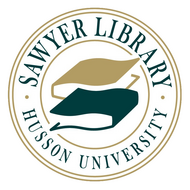
(View Complete Item Description)
This free digital textbook serves as a companion to EDUC 1300/1200/1100 Learning Framework: Effective Strategies for College Success at Austin Community College. This book is an accessible and relevant way to explore the research and theory in the psychology of learning, cognition, and motivation as well as factors that impact learning, and the presentation of specific learning strategies. This Open Educational Resource was remixed from a previous version found at https://courses.lumenlearning.com/austincc-learningframeworks/ by Heather Syrett and Laura Lucas. Senior Contributing Author and EditorHeather Syrett, Professor and Assistant Department ChairStudent Development and General StudiesAustin Community College Contributing AuthorsPamela Askew, ProfessorStudent Development and General StudiesAustin Community CollegeEduardo Garcia, ProfessorStudent Development and General StudiesAustin Community College Edgar Granillo, Professor and Department ChairStudent Development and General StudiesAustin Community College Laura Lucas, Former Adjunct ProfessorStudent Development and General StudiesAustin Community CollegeMarcy May, Adjunct ProfessorStudent Development and General StudiesAustin Community CollegeTobin Quereau, Former Adjunct ProfessorStudent Development and General StudiesAustin Community CollegeAmber Sarker, ProfessorStudent Development and General StudiesAustin Community College Paul Smith, Adjunct ProfessorStudent Development and General StudiesAustin Community College Eva Thomsen, Associate ProfessorStudent Development and General StudiesAustin Community College Suggested Attribution for Reuse;Syrett, H., et al. Learning Framework: Strategies for College Success. Provided by: Austin Community College. Located at: OERCommons, https://www.oercommons.org/courseware/8434. License: CC BY-NC-SA-4.0 Revised August 2020 (Chapters 1, 4, 6, 7, and 8), August 2021 (Chapters 2 and 15), August 2022 (Chapters 1, 3, and 16), August 2023 (Chapters 1, 16, and 17).
Material Type:
Full Course




















